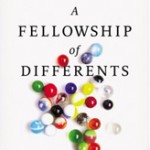The temptation in blogging is to eviscerate people by way of argument. If I give in to temptation, people who do wrong things get treated like worthless individuals. They exist to help me bolster my case that I’m the really good one. But what if I were the person being criticized? Do I criticize in the same way I would want to be criticized?
I’m tempted to join in the “take-no-prisoners” approach to critique because I do see a lot of wrong things in American Christianity. It’s tempting to tear people down. It’s tempting to lift myself above others.
Except for this one fact: I believe in a religion of grace. In the documentary film, The Overnighters, Pastor Jay Reinke is fighting against those in his own congregation who don’t want to reach out to a difficult group of men who need their help. He says this:
A Christian ethic is now, “Who is my neighbor and how do I serve him?” Not only are these men my neighbor; the people who don’t want them here are also my neighbor.
In a similar way, it’s not just people who’ve been hurt by the Church who are my neighbors. It’s also not just the Christians who seem openhearted to others who are my neighbors. It’s also those whose hearts are closed, those whose politics are way too mixed with their faith, those who have no sense of mission and outreach, those with whom I disagree. I am called to treat those groups with as much love as I do those with whom I agree and those with whom I naturally empathize. I am called to challenge people, yes, but not to eviscerate them. There should always be arms outreached and hope for redemption. I find this very challenging. It’s easy to love people that I naturally empathize with. It’s hard to love people who frustrate me greatly. In many ways, my idealism makes it much easier for me to love people outside the Church than people within who don’t live up to its ideals. It’s tempting to eviscerate them instead of long for reconciliation with them. It’s tempting to push them away instead of speaking with a winsome tone. (They probably feel the same way about me.)
At first glance, when I see Nightcrawler, I recoil. But then I recognize too much of myself in Lou’s hungry eyes. And I realize I still have plenty to repent for. I still have plenty of areas in which I need transformation. I still have plenty of self-centered drive.
You should watch this film too. It’ll mess with you, because you too just might see a little too much of yourself in Lou or Nina or in the countless viewers who feed their desperation.
Watching this film could become a Lenten act of repentance in our media-driven world. It could become an opportunity to pray for the real people whose stories are mediated through the news, through tabloids, through our blogs. An opportunity to pray that they might encounter grace–through God, through Christians, and through a humanity that acts human.
Header photo source: IMDB.com. Photo by Chuck Zlotnick.
——————-
Community discussion guidelines:
Because this is a Christian blog, the things I’m talking about will obviously be topics that people feel strongly about in one direction or another. Please keep in mind that this is a place for substantive, respectful conversation. All perspectives are welcome to discuss here as long as all can treat each other with kindness and respect. Please ignore trolls, refuse to engage in personal attacks, and observe the comment policy listed on the right side of the page. Comments that violate these guidelines may be deleted. For those who clearly violate these policies repeatedly, my policy is to issue a warning which, if not regarded, may lead to blacklisting. This is not about censorship, but about creating a healthy, respectful environment for discussion.
P.S. Please also note that I am not a scientist, but a person with expertise in theology and the arts. While I am very interested in the relationship between science and faith, I do not believe I personally will be able to adequately address the many questions that inevitably come up related to science and religion. I encourage you to seek out the writings of theistic or Christian scientists to help with those discussions.
———————-












